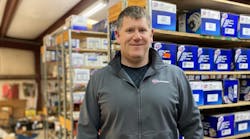The Volkswagen emissions cheating scandal could have numerous repercussions for various aftermarket auto sectors. The fact that VW was able to install software on diesel models that defeated the EPA laboratory emissions tests has to raise questions in the minds of federal and state regulators on a number of fronts.
While the VW defeat devices were illegal, all one has to do is Google "auto defeat devices" and see all sorts of aftermarket emissions products pop up for sale.
Chris Grundler, director of EPA’s Office of Transportation and Air Quality, told the Washington Post the agency is reviewing its testing procedures and working on a process to screen for defeat devices similar to the software that VW used to make its cars run cleaner during emissions tests.
The EPA's policy on aftermarket defeat devices is unclear. The EPA/DOJ signed a consent decree back in 2007 with Casper's Electronics over Casper's sales of "oxygen sensor simulators" or "O2 Sims." An O2 Sim tricks an automobile engine's computer into sensing a properly functioning emission control system, even when the catalytic converter is missing or faulty. A false electronic signal is sent to the car's engine control computer, preventing the "check engine" or malfunction light from illuminating. Those devices are widely available today.
Joe Kubsh, executive director, Manufacturers of Emission Controls Association (MECA), says the EPA's enforcement of aftermarket policies needs attention.
"There are these oxygen foolers out there, and people are selling aftermarket converters without any precious metal on them," he says. But he notes that the agency has limited enforcement resources, which limit the attention the agency can pay to aftermarket products. Julia Valentine, an EPA spokeswoman, was not able to clarify the status of aftermarket defeat devices.
Rather than wielding a bigger stick against O2 Sims and other products, the VW affair is more likely to spur the EPA to revise its policy on aftermarket catalytic converters. The MECA and many of the Northeast states have been pushing unsuccessfully for a tightening of the policy for a number of years. What makes that more likely now are the concerns about emission controls raised by the VW affair and the new EPA ozone standard.
The EPA reduced the National Ambient Air Quality Standards (NAAQS) for ground-level ozone to 70 parts per billion (ppb) from 75 ppb to protect public health. Ground-level ozone forms when nitrogen oxides (NOx) and volatile organic compounds (VOCs) react in the air. The 70 ppb standard will push a number of areas in the Northeast "out of attainment," according to Kubsh.
One of the key tools those states could use to get those areas into attainment would be access to California's aftermarket catalytic converter program, which is tougher than the EPAs. "The new ozone rule will give the Northeast states new leverage with the EPA," Kubsh says. "The agency has actually started to pay attention to this conversation in the not-too-distant past as opposed to stonewalling us."
California is in the midst of revising its onboard diagnostic (OBD) policies and there is certainly a possibility that given the VW emissions problem the Golden State will tighten its aftermarket catalytic converter policies even more, especially since some of its metropolitan areas may fall short of the new 70 ppb ozone standard, which won't be enforced for a few more years. A California Air Resources Board (CARB) official did not respond to an e-mail asking about that possibility.
Environmentalists are already applying political pressure on the EPA to revise some auto testing requirements. The Center for Biological Diversity has filed a petition demanding that the EPA conduct real-world testing of all diesel cars going back to model year 2009.
“Asthma kills thousands of Americans a year, and letting car companies get away with cheating on emissions tests puts more lives at risk,” said Kristen Monsell, a lawyer for the group. “There’s no good reason for the EPA not to employ every method possible to detect fraud and protect public health and our climate. The Volkswagen debacle ought to be a wake-up call for the agency to make that happen.
Subscribe to Aftermarket Business World and receive articles like this every month….absolutely free. Click here.

